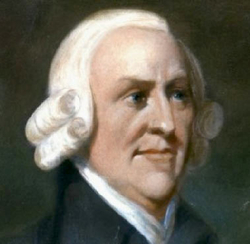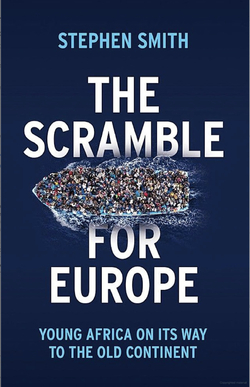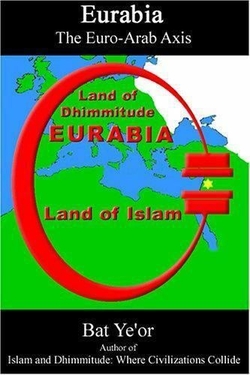Lorenza Formicola: Approximately 5.3 million Ukrainian refugees have moved to the European Union since Feb. 24, with minimal problems. In contrast, Europe went into crisis with the arrival of just over a million Syrians, Iraqis, and other non-Europeans in 2015-16. Please comment on this contrast.
 Adam Smith (ca.1723-90). |
LF: Before the Russian attack, Ukrainians, with the lowest per capita income in Europe, would not have been welcomed, then suddenly they were. Does this precedent point to future crises legitimizing migratory flows otherwise considered illegal?
DP: No, the Ukrainian crisis is a great exception because Ukrainians are Europeans. The great majority of would-be migrants to Europe come from outside Europe and so will not be similarly welcomed. Also, most of those non-Europeans primarily seek to better their economic circumstances, which limits sympathy for them.
LF: Does racism explain the difference in the warm reception of Ukrainians versus the cold one for non-Europeans?
DP: All humans have a preference for people who act and look like themselves, but this has only a minor role in explaining the contrasting reception between Ukrainians and non-Europeans. I listed and explained those differences in a recent article on Ukrainian refugees. In brief:
- Refugees vs. economic migrants
- Reluctance vs. eagerness
- Proximity vs. distance
- Solidarity vs. discord
- Invasion vs. domestic issues
- Self-interest vs. indifference
- Viable skills vs. unemployability
- Work vs. welfare
- Good citizenship vs. criminality
- Moderation vs. Islamism
- Cultural similarity vs. difference
- Assimilation vs. separatism
- Limited vs. unlimited numbers
LF: You have developed the idea of cultural zones where people should take refuge, such as Latin America for Latin Americans. How does the Ukrainian crisis bear on this concept?
DP: It confirms how natural it is for Europeans to seek and receive refuge in Europe. It's not the same when Somalis and Kurds demand entry.
LF: Given that Europe's indigenous population is decreasing in size while Africa's is expected to triple by 2100, is Africa the future of Europe?
DP: It could be unless something changes, and fast. Note some statistics: In 1885, Europe (excluding Russia and Turkish Thrace) had an estimated population of 240 million people while Africa had about 100 million. Today, those numbers are roughly 600 million and 1.25 billion. Demographers predict that in 2050, the populations will be 600 million and 2.5 billion, respectively. So, in the course of 165 years, Africa will have grown ten times faster than Europe. In 2100, the numbers are expected to be about 500 million and 4 billion.
 I know of only one book on this topic, The Scramble for Europe by Stephen Smith. Weirdly, Smith sees this immigration as more of a problem for Africa than for Europe (on the basis that its most talented individuals are leaving). But I see the problem as one of swamping Europe with peoples of an extremely alien culture. I expect that very few Europeans welcome such changes. Unless an effective barrier against unlimited immigration goes up soon, Europe could turn into an extension of Africa.
I know of only one book on this topic, The Scramble for Europe by Stephen Smith. Weirdly, Smith sees this immigration as more of a problem for Africa than for Europe (on the basis that its most talented individuals are leaving). But I see the problem as one of swamping Europe with peoples of an extremely alien culture. I expect that very few Europeans welcome such changes. Unless an effective barrier against unlimited immigration goes up soon, Europe could turn into an extension of Africa.
LF: Italy is the European country most affected by illegal migrants. Although Lega managed to reduce this problem by 97 percent in its time at the Ministry of the Interior, repatriation eluded even it. Why so?
DP: As Matteo Salvini dramatically showed, it is relatively simple to prevent illegal migrants from entering by setting up patrols, rejecting "taxi" ships full of illegal migrants, and sending negative signals to potential illegals. In contrast, repatriation involves families, jobs, and the judicial system, making it far more costly, complex, and unsuccessful.
LF: ISIS and other Islamist terror groups seek to exploit illegal migrants to infiltrate Europe. How much of a problem does this present?
DP: Jihadis disguised as normal migrants have successfully engaged in violent incidents in both Europe and North America. So long as unvetted migrants have access to Western countries, we should expect this pattern to continue.
LF: In an echo of what happened in late 2021, when Poland found itself invaded by migrants coming from Belarus, Bangladeshis arriving on chartered flights make up the most common illegal migrants in Italy. But whereas Warsaw raised its voice in outrage, Rome does not. Why do you think that is the case?
DP: First, the current Polish government worries about illegal migrants in a way that its Italian counterpart does not. Second, that the Belarus government invited those migrants to exploit them as a weapon against Poland made the issue highly emotional and a challenge to the Polish state.
LF: What do you think of a recent decision by the European Union Commission promoting the hijab (an Islamic headcover) as a symbol of diversity and freedom?
DP: This fits with the by-now traditional attitude of what I call the 6Ps, namely the police, politicians, press, priests, professors and prosecutors. They see Europe's culture as morally inferior to those of other regions due to Europe's trio of racism, imperialism, and fascism (as though these horrors were limited to Europe). They are eager to import customs that reduce European civilization.
LF: Are European leaders ignorant of or complicit in the Islamization of the West?
DP: Complicit: the 6Ps welcome Islamization. They denigrate Christianity and Judaism but welcome and celebrate Islam as the religion of virtuous victims.
 LF: Bat Ye'or accuses European institutions of promoting Islamization by encouraging immigration from Muslim countries and then by demanding cultural dialogue. Do you agree with her?
LF: Bat Ye'or accuses European institutions of promoting Islamization by encouraging immigration from Muslim countries and then by demanding cultural dialogue. Do you agree with her?
DP: Yes, I do. She sees this process as more organized and purposeful than I do, but that's a small difference.
LF: Are any Western governments allied with radical Islam?
DP: In limited ways, at certain times and in some places, yes – for example, in Libya and Türkiye. But not more than that.
LF: In France, the issue of the headscarf in schools is back, more than ever. Why is it important that young girls wear hijab?
DP: The hijab marks the girls as Muslim, isolating them from other students and asserting their superiority through their modesty.
LF: Why do so many politicians and intellectuals insist that the hijab is just an innocent cultural symbol, analogous to a Catholic nun's veil?
DP: Again, because it undercuts traditional European customs and mores.
LF: Given the growth of antisemitism driven by Muslims, do Jews have a future in Europe?
DP: I think not. In a blog that I began in 2004 and have often updated since, "Jewish Life in an Increasingly Muslim Europe," I document a small fraction of the travails that Europe's Jews are suffering, from bigotry to murder. They are so many.
 Interestingly, recent years have seen non-Jewish Europeans begin to envy Jews because they have a place of refuge. Michel Houellebecq in the novel Soumission has a Christian man's Jewish girlfriend announce she is escaping an Islamist government in France by moving to Israel. He sadly replies, "There is no Israel for me."
Interestingly, recent years have seen non-Jewish Europeans begin to envy Jews because they have a place of refuge. Michel Houellebecq in the novel Soumission has a Christian man's Jewish girlfriend announce she is escaping an Islamist government in France by moving to Israel. He sadly replies, "There is no Israel for me."
LF: You define "civilizationist parties" as European parties with a common denominator to preserve Western ways, especially from the Islamist threat. Are they the only barrier against the transformation of civilization?
DP: No, they are not. As can be seen most strikingly in Denmark, leftist parties like the Social Democrats can take up the cause of limiting immigration. The phenomenon exists in other countries too, but only in Denmark is such a party at the head of a governing coalition.